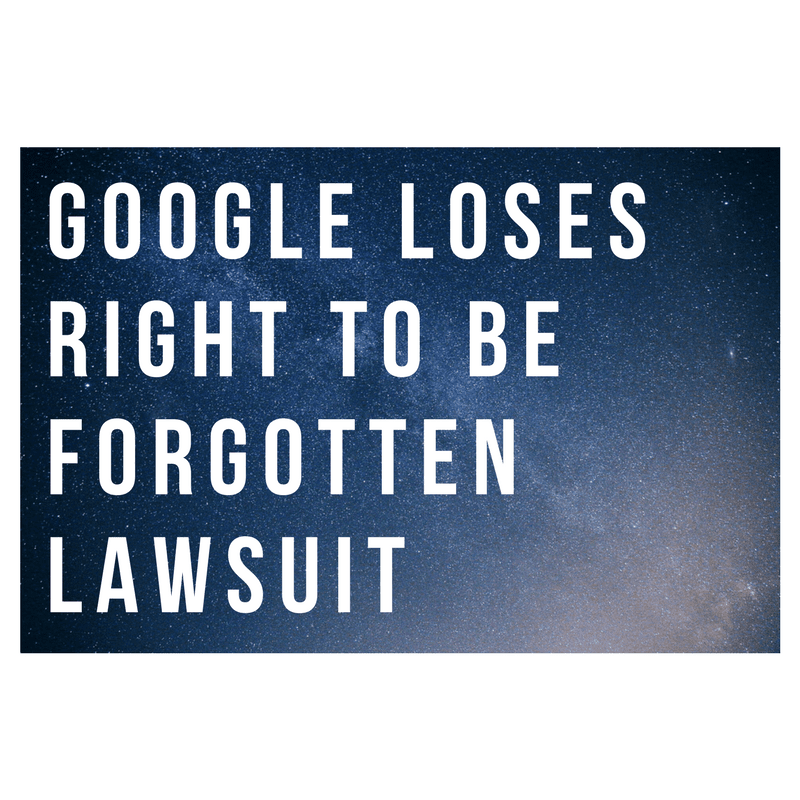For one businessman, articles listed on Google about his criminal conviction were cramping his style. While the articles were true in their nature and were not defamatory, the businessman (unnamed) decided to sue Google under the European law that confers the right to be forgotten. Google argued that it is in the public’s interest to know about this conviction overrode the businessman’s privacy interests. However, as you can see from the “cryptic” title of this post, Google lost.
Table of Contents
What is “right to be forgotten”?
The right to be forgotten was conferred under a statute by the European Court of Justice in 2014. It states that European citizens can petition search engine companies to delist URLs.
What is the standard used to determine if a URL should be delisted?
A URL should be delisted from search engines if the information on the website is:
- Inaccurate;
- Irrelevant; or
- Not in the public interest to keep available.
Where did this lawsuit take place?
England.
Did the businessman win any damages?
No, the court did not award any damages in this case.
What does it mean that Google lost?
This result means that Google will have to ensure that search results in the future will not list that particular article.
What does this mean for the future?
The winning of this lawsuit means an increase in delisting requests to Google and other search engines and an increase in other lawsuits of the same nature. One could argue that it also means a new era of internet censorship where the interests of one individual against articles that he or she does not like are delisted or even deleted in the interest of preventing litigation. Since this lawsuit, Google has received more than 2 million requests to delist articles from European citizens.




